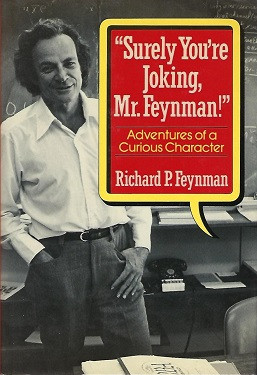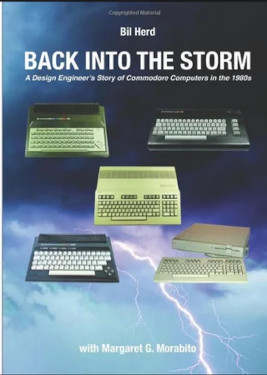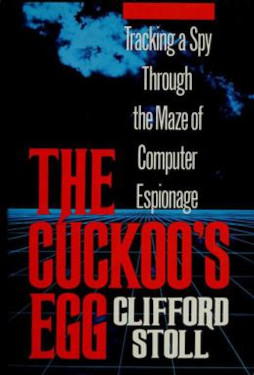The Hackaday Summer Reading List: No AI Involvement, Guaranteed

If you have any empathy at all for those of us in the journalistic profession, have some pity for the poor editor at the Chicago Sun-Times, who let through an AI-generated summer reading list made up of novels which didn’t exist. The fake works all had real authors and thus looked plausible, thus we expect that librarians and booksellers throughout the paper’s distribution area were left scratching their heads as to why they’re not in the catalogue.
Here at Hackaday we’re refreshingly meat-based, so with a guarantee of no machine involvement, we’d like to present our own summer reading list. They’re none of them new works but we think you’ll find them as entertaining, informative, or downright useful as we did when we read them. What are you reading this summer?
Surely You’re Joking, Mr. Feynman!
 Richard P. Feynman was a Nobel-prize-winning American physicist whose career stretched from the nuclear weapons lab at Los Alamos in the 1940s to the report on the Challenger shuttle disaster in the 1980s, along the way working at the boundaries of quantum physics. He was also something of a character, and that side of him comes through in this book based on a series of taped interviews he gave.
Richard P. Feynman was a Nobel-prize-winning American physicist whose career stretched from the nuclear weapons lab at Los Alamos in the 1940s to the report on the Challenger shuttle disaster in the 1980s, along the way working at the boundaries of quantum physics. He was also something of a character, and that side of him comes through in this book based on a series of taped interviews he gave.
We follow him from his childhood when he convinced his friends he could see into the future by picking up their favourite show from a distant station that broadcast it at an earlier time, to Los Alamos where he confuses security guards by escaping through a hole in the fence, and breaks into his colleagues’ safes. I first read this book thirty years ago, and every time I read it again I still find it witty and interesting. A definite on the Hackaday reading list!
Back Into The Storm
 A lot of us are fascinated by the world of 1980s retrocomputers, and here at Hackaday we’re fortunate to have among our colleagues a number of people who were there as it happened, and who made significant contributions to the era.
A lot of us are fascinated by the world of 1980s retrocomputers, and here at Hackaday we’re fortunate to have among our colleagues a number of people who were there as it happened, and who made significant contributions to the era.
Among them is Bil Herd, whose account of his time working at Jack Tramiel’s Commodore from the early to mid 1980s capture much more than just the technology involved. It’s at the same time an an insider’s view of a famous manufacturer and a tale redolent with the frenetic excesses of that moment in computing history. The trade shows and red-eye flights, the shonky prototypes demonstrated to the world, and the many might-have-been machines which were killed by the company’s dismal marketing are all recounted with a survivor’s eye, and really give a feeling for the time. We reviewed it in 2021, and it’s still very readable today.
The Cuckoo’s Egg
 In the mid 1980s, Cliff Stoll was a junior academic working as a university sysadmin, whose job was maintaining the system that charged for access to their timesharing system. Chasing a minor discrepancy in this financial system led him to discover an unauthorised user, which in turn led him down a rabbit-hole of computer detective work chasing an international blackhat that’s worthy of James Bond.
In the mid 1980s, Cliff Stoll was a junior academic working as a university sysadmin, whose job was maintaining the system that charged for access to their timesharing system. Chasing a minor discrepancy in this financial system led him to discover an unauthorised user, which in turn led him down a rabbit-hole of computer detective work chasing an international blackhat that’s worthy of James Bond.
This book is one of the more famous break-out novels about the world of hacking, and is readable because of its combination of story telling and the wildly diverse worlds in which it takes place. From the hippyish halls of learning to three letter agencies, where he gets into trouble for using a TOP SECRET stamp, it will command your attention from cover to cover. We reviewed it back in 2017 and it was already a couple of decades old then, but it’s a book which doesn’t age.
The Code Book
 Here’s another older book, this time Simon Singh’s popular mathematics hit, The Code Book. It’s a history of cryptography from Roman and medieval cyphers to the quantum computer, and where its value lies is in providing comprehensible explanations of how each one works.
Here’s another older book, this time Simon Singh’s popular mathematics hit, The Code Book. It’s a history of cryptography from Roman and medieval cyphers to the quantum computer, and where its value lies is in providing comprehensible explanations of how each one works.
Few of us need to know the inner workings of RSA or the Vigniere square in our everyday lives, but we live in a world underpinned by encryption. This book provides a very readable introduction, and much more than a mere bluffers guide, to help you navigate it.
The above are just a small selection of light summer reading that we’ve been entertained by over the years, and we hope that you will enjoy them. But you will have your own selections too, would you care to share them with us?
Header image: Sheila Sund, CC BY 2.0.